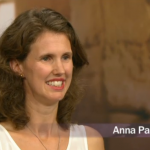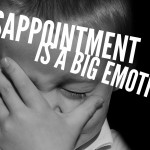 It is the June holidays and end of Term 2 – it’s likely you have received your child’s mid year school report.
It is the June holidays and end of Term 2 – it’s likely you have received your child’s mid year school report.
Times have changed since we were at school in the 1980’s when a C on a school report was average and if you got a D, you didn’t get fed dinner or were marched to the Principal’s office for some explanation.
Under the new(ish) Australian Curriculum, which is slowly rolling out across every school in Australia, a C actually means Competent. So if your child’s report card is full of Cs, relax. It is all good. While D stands for Developing. This means your child has not yet reached the outcome for this stage of the year. If there are Ds on your child’s report, now is the time to book a time to see your child’s teacher to find out practical ways you can help your child achieve a C (Competent) by the end of the year.
If your child gets a B, they are doing well. In some schools, this means they are one year ahead of the expected outcome. If they get an A, they are doing extremely well. It can mean your child is two years above their grade for that outcome. I wrote reports for about 70 children during the one year and only gave out 6 A’s across all subject and all children. A’s and B’s are still under some discussion, at some schools they are still used with B being outstanding and A as excelling. Either way, your child is doing well in that subject or outcome.
Ideally, a report shows you what your child is doing well and what they can improve on. This is where you come in – especially mid way through the year. To see an improvement in the particular comment or grade by the end of the year, your child will need some help to develop. And rest assured, unless it is a different the classes I taught, I could not focus on improving every outcome for every child, without the help of their parents. For example, a student I taught in Year 1 was not doing well with her Math’s. It was because she couldn’t count from 0 to 100 forwards or backwards – despite ongoing class counting, it was not enough. This was easily fixed with her parents playing counting games in the car or every time they walked somewhere counting the steps they walked and then counting backwards when walking in the opposite direction. Simple really.
In addition, most reports give a mark for achievement and effort. Achievement is more easily improved than effort. Effort is the amount of care and interest your child has in that subject. If they have a low effort in Maths and English, generally their achievement will show the same. Talking with your child’s teacher is important here to see how you can improve their effort and interest. For example, if they are scoring lower marks for effort in Science, a trip to the local science museum could help. Or a D for Physical Education in effort, enrolling in a sports club to increase their interest.
To see what the expected outcome for your child’s grade for each subject of the Australian Curriculum (ACARA), go to the ACARA website. To navigate ACARA, go to Curriculum and search the subject you are interested in. For example, if you want to know the expected outcome in English for your child who is in Year 2, click here and you will scroll down to Year 2. English is divided into three strands – language, literacy and literature with outcomes under each strand. You will also see samples of work showing satisfactory, above satisfactory and below satisfactory. As mentioned, if your child gets a C grade for an outcome, they are competent with that outcome or subject. There are outcomes for Maths, Science, History, Geography, The Arts, Technologies and Health and Physical Education for each grade. It can be hard to understand, even as a new tool for teachers.
After all that, I still struggle with the concept of reporting on children in the early years, especially Kindergarten and Year 1 (5 and 6 year olds). It is more valuable at this stage to meet with your child’s school teacher and talk about any challenges. At this age, it is invaluable your child is in the right environment, at home and at school to instill a lifetime love of learning and develop a positive view of school to last for the next 11 to 12 years.
Follow BombardedMum at facebook.com/bombardedmum or instagram.com/bombardedmum







Sorry, comments are closed for this post.